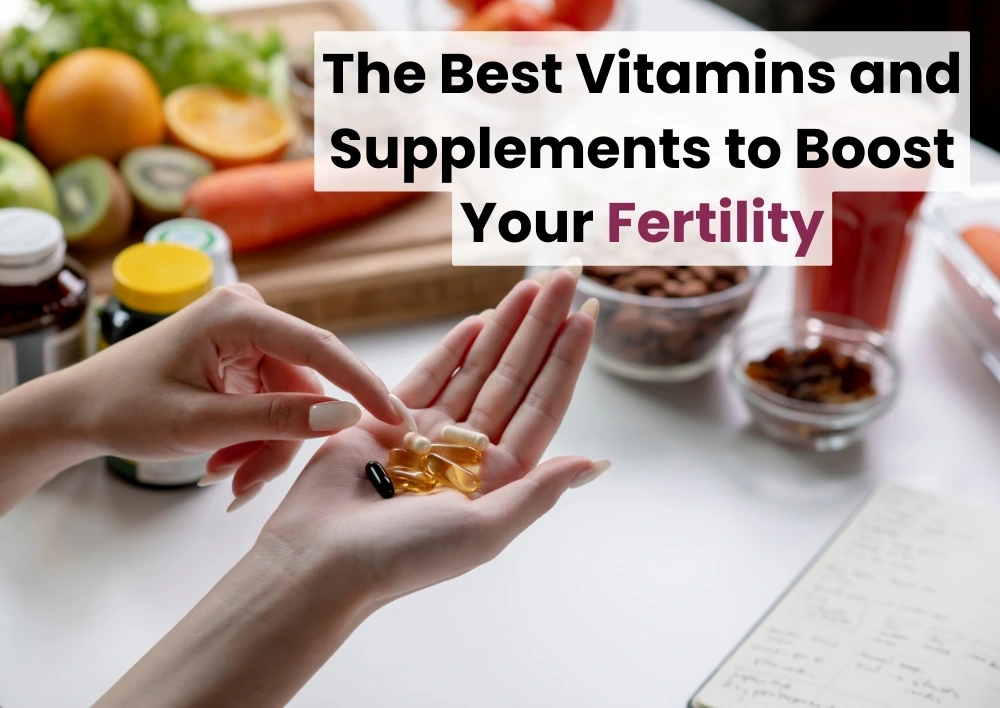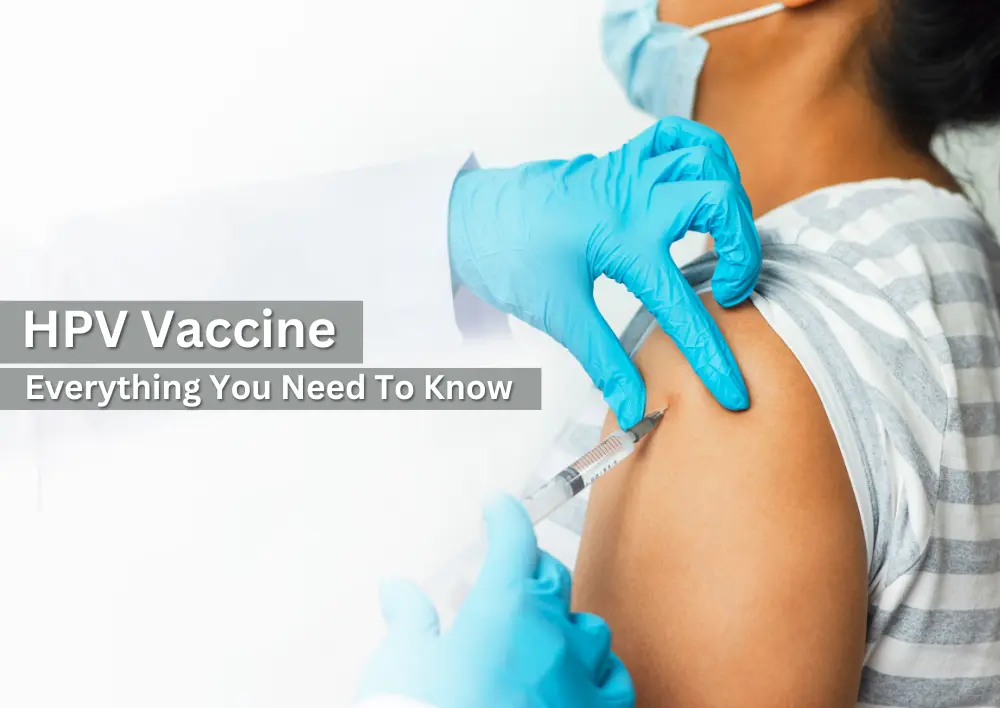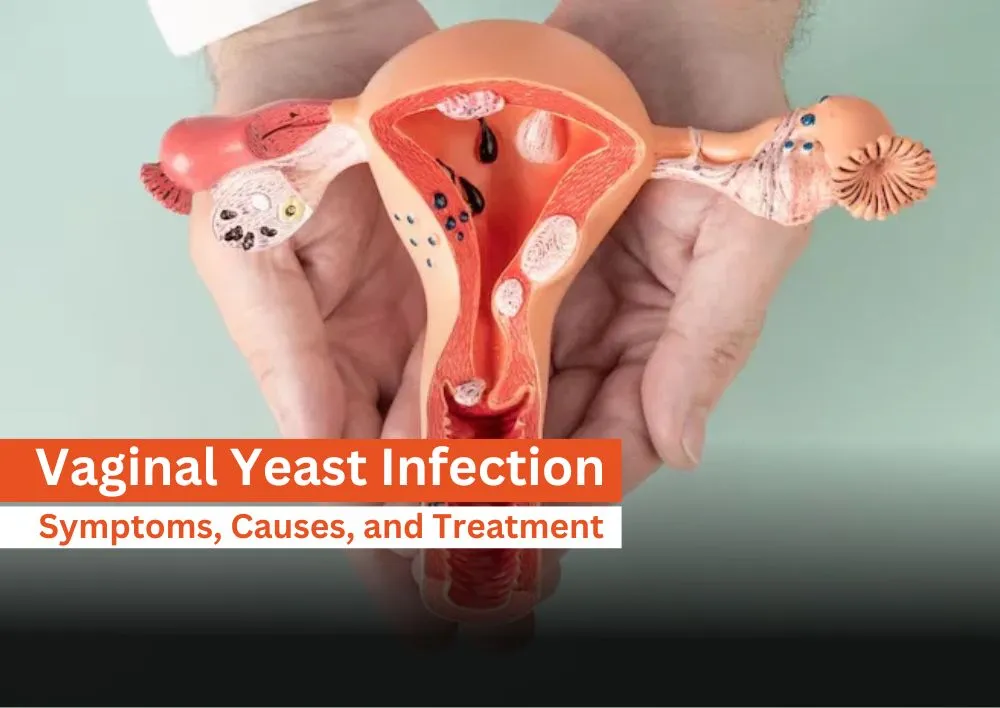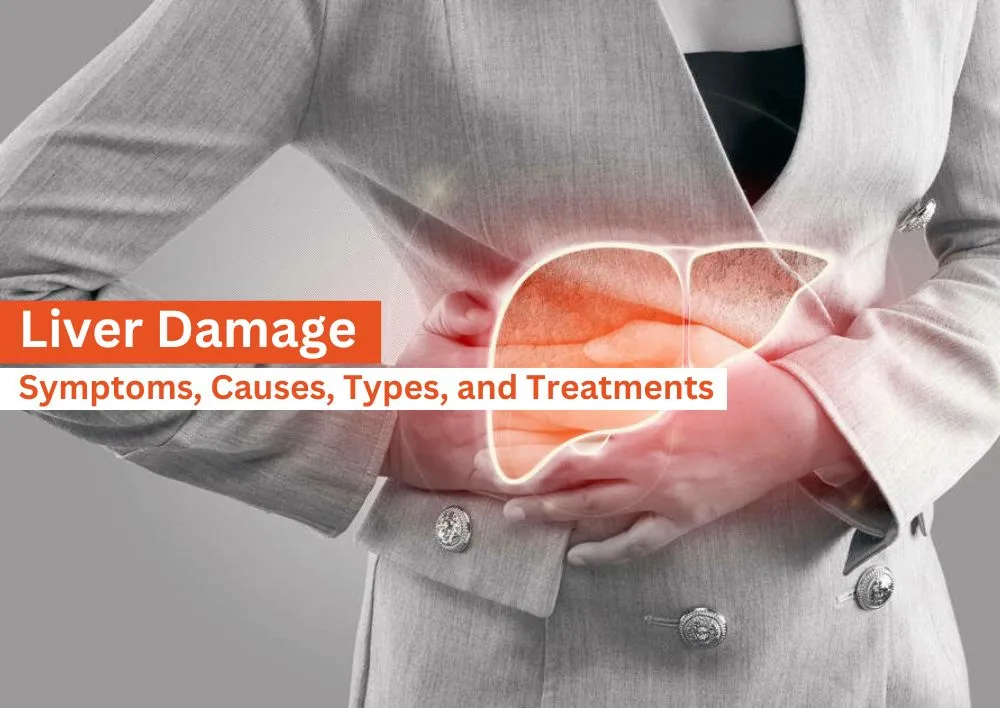The Best Vitamins and Supplements to Boost Your Fertility
When it comes to fertility, many factors come into play important roles such as age, lifestyle, diet, fertility supplements, and overall health. While it may seem like conception is out of our hands at times, studies show that improving your nutritional intake can help boost fertility in both men and women. If you are trying to conceive, certain fertility vitamins and supplements can play an important role in optimizing your reproductive health. In this post, the best fertility doctor at Miracles Fertility & IVF Clinic provides insights into the best vitamins and supplements to increase fertility and improve your chances of starting or expanding your family.
The Connection Between Nutrition and Fertility
Before exploring the key vitamins and supplements that boost fertility, it is important to understand the connection between nutrition and reproductive health. Your fertility is closely linked to your nutritional habits. The body requires a wide range of vitamins, minerals, and antioxidants to function optimally, particularly when it comes to reproduction. Nutrient deficiencies can disturb hormone production, affect sperm quality, harm egg health, and change the uterine environment, all of which are essential for successful conception.
By including the right fertility vitamins and supplements in your daily routine, you can enhance your reproductive health and improve your chances of conceiving. Now, let’s take a closer look at the essential supplements and vitamins that support fertility and get pregnant fast.
Key Vitamins and Supplements for Boosting Fertility
1. Folic Acid (Vitamin B9): Folic acid, also known as Vitamin B9, is widely recognized for its role in supporting a healthy pregnancy, but its benefits start even before conception. Essential for cell division and DNA synthesis, they also help prevent several birth defects like spina bifida and neural tube defects. For females trying to conceive, folic acid can also improve the health of the egg and improve fertility by supporting healthy ovulation.
How It Helps:
-
Promotes healthy egg development.
-
Regulates hormonal balance.
-
Reduces the risk of miscarriage.
2. Vitamin B6 and B12: Vitamins B6 and B12 play important roles in fertility, particularly in hormone regulation. Vitamin B6 helps to regulate progesterone levels and can support overall menstrual cycle health. Vitamin B12, on the other hand, is important for red blood cell production, DNA synthesis, and the functioning of the nervous system.
How They Help:
-
Regulate menstrual cycles and support ovulation.
-
Vitamin B12 supports healthy egg development and also increases sperm motility.
-
Reduces the chance of miscarriage and supports healthy pregnancy.
3. Vitamin B8 (Inositol): Vitamin B8, or Inositol is a type of sugar that supports insulin function and ovarian health. It is one of the best fertility supplements for women with polycystic ovary syndrome (PCOS). Myoinositol and D-chiro inositol are two types that are commonly used to improve ovulatory function and promote healthy hormone balance.
How They Help:
-
Improves ovarian function and egg quality.
-
Supports hormone regulation in women with PCOS.
-
Enhances insulin sensitivity, reducing PCOS symptoms.
4. Vitamin D: Vitamin D is essential for reproductive health, as it plays a crucial role in hormone regulation. Studies have shown that a deficiency in Vitamin D can lead to ovulatory dysfunction, impacting fertility. It is also important for maintaining a healthy immune system and for overall reproductive system function in both men and women.
How It Helps:
-
Regulates menstrual cycles and hormone levels.
-
Improves the quality of eggs in women.
-
Enhances sperm motility and health in men.
5. Vitamin C: It is a very powerful antioxidant that boosts immunity and protects reproductive cells from oxidative stress. It plays an important role in the production of collagen, which is important for the structure of the reproductive organs, including the uterus.
How It Helps:
-
Protects eggs and sperm from oxidative damage.
-
Enhances sperm motility and sperm count in men.
-
Supports cervical mucus production and overall reproductive health
6. Vitamin E: Vitamin E is a potent antioxidant that helps protect the reproductive organs from oxidative stress, which can damage eggs and sperm. It also supports overall reproductive health by improving cervical mucus production, which is crucial for fertilization.
How It Helps:
-
Protects eggs and sperm from free radical damage.
-
Improves cervical mucus quality.
-
Enhances the chances of a successful pregnancy.
Additional Supplements for Fertility
1. Omega-3 Fatty Acids: Omega-3 fatty acids, particularly DHA and EPA, are vital for hormone regulation, ovulation, and sperm health. They help reduce inflammation in the body, which can improve the chances of conception. Omega-3s are also known to support healthy cervical mucus production, which is essential for sperm to swim and reach the egg.
How It Helps:
-
Regulates hormones and supports ovulation.
-
Enhances sperm motility and quality.
-
Reduces inflammation that can interfere with fertility.
2. Zinc: This is an important mineral for the production of hormones and reproductive health. For women, zinc supports healthy ovulation and helps regulate menstrual cycles. For men, zinc is vital for sperm production, motility, and overall reproductive health.
How It Helps:
-
Improves sperm quality and motility in men.
-
Supports healthy ovulation in women.
-
Boosts immune function, ensuring overall reproductive health.
3. Iron: This plays an important role in fertility by supporting the production of hemoglobin, which carries oxygen throughout the body. Iron deficiency is linked to infertility and an increased risk of miscarriage, as it can impair the ability of the body to support a healthy pregnancy.
How It Helps:
-
Supports ovulation and healthy egg development.
-
Prevents anemia, which can reduce fertility.
-
Contribute to proper blood flow and nutrient delivery to reproductive organs.
4. Selenium: Selenium is a trace mineral with antioxidant properties that support the health of sperm and eggs. It works synergistically with Vitamin E to protect reproductive cells from oxidative stress. Selenium also helps regulate thyroid function, which is essential for fertility.
How It Helps:
-
Improves sperm motility and quality.
-
Supports thyroid function, which is crucial for fertility.
-
Protects reproductive cells from oxidative damage.
How to Choose Your Supplements?
-
Assess Individual Nutritional Needs: Understand your personal health and fertility requirements before selecting supplements.
-
Consult Your Doctor: Always consult your doctor to ensure you're choosing the right supplements tailored to your specific fertility and health needs.
-
Review the Ingredient List: Ensure the vitamins and minerals you select are necessary and beneficial, such as folic acid, Vitamin D, and zinc.
-
Avoid Self-Medicating: Always seek professional guidance to avoid potential interactions with medications or health conditions.
-
Ensure Safety: Make sure the supplements are compatible with your existing medications or health conditions.
Conclusion
Fertility is a complex process, but maintaining a healthy diet and taking the right vitamins and supplements can significantly improve your chances of conception. Key vitamins like folic acid, Vitamin D, B6, and B12, and antioxidants like Vitamins C and E can help optimize reproductive health for both men and women. Additional supplements like iron, selenium, zinc, and CoQ10 can further support fertility and improve overall reproductive function.
Before starting any fertility supplement regimen, always consult with a fertility specialist. They can guide you on the right supplements for your specific needs and ensure they do not interfere with other medications or treatments. By boosting your fertility with the right nutrients, you are taking a proactive step toward a healthier pregnancy and increasing your chances of success on your fertility journey. Want personalized advice on fertility supplements? Consult a fertility specialist near you for a consultation tailored to your needs.






_in_Pregnancy.webp)






Was the information useful?
1 0